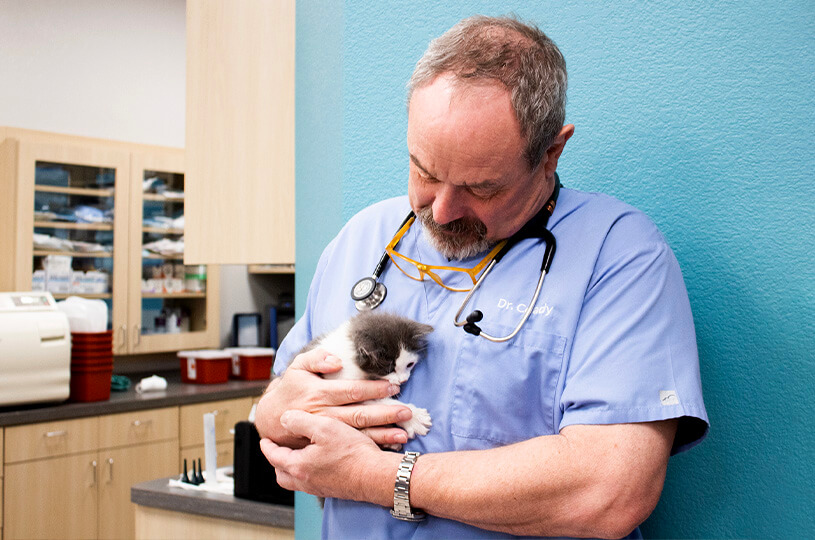
Cats have a reputation for being independent and self-sufficient creatures, but like all pets, they can get sick. As a cat owner, it’s important to be aware of the signs that your pet might be unwell and what options you have to keep them happy and healthy. If you become aware of any of the following signs in your cat, take notice.
1. Change in Appetite
If your cat suddenly stops eating or begins eating more than usual, it can be a sign that something is wrong. Possible reasons may be dental issues, digestive issues, or even something more serious like cancer. For example, dental issues can make it painful for a cat to eat hard food, causing them to lose their appetite. On the other hand, if your cat is eating much more than normal, it could be a sign of endocrine dysfunction. Or in some cases, like gastrointestinal problems such as inflammatory bowel disease, there can be both over-eating and under-eating at different stages of illness.
2. Change in Behavior
Abnormal hiding is a tell-tail sign your cat isn’t feeling well. Changes in activity levels, i.e. if your cat becomes more lethargic or less active than usual, is another sign that something is off. Cats who are feeling pain or discomfort may sleep more, move less, and be less interested in play or interaction with their owners. Additionally, if your cat becomes more vocal or start displaying aggression, it could be an indication of an underlying health problem. Cats will exhibit these changes in behavior to express their discomfort and/or pain.
3. Change in Grooming
Cats are fastidious groomers, so if you notice your cat has stopped grooming itself or has a matted coat, it could indicate they’re feeling ill. Cats who are sick may not have the energy or motivation to groom themselves, leading to a dirty and matted coat.
4. Change in Litter Box Habits
If your cat starts to urinate or defecate outside of the litter box, it could be a sign of a urinary tract infection or another health issue. Cats with urinary tract infections may associate the litter box with pain, leading to an avoidance of the box. Additionally, if a cat has a gastrointestinal issue, it may cause them to have diarrhea or constipation, which can also lead to an aversion to the litter box.
5. Change in Appearance
If you notice any lumps, bumps, or changes in your cat’s coat, such as hair loss, it could be a sign of a serious health problem. This can indicate a more serious condition such as cancer, and it’s a good idea to have your cat examined by your veterinarian as soon as possible.
Contact Your Veterinarian
It is important to note that these signs can be caused by many different things and in some cases, it may be something minor. Introducing a new pet into the home or a change of environment may cause your cat’s behavior to change temporarily. However, if you notice a change in appetite, behavior, grooming, habits, or appearance, it’s better to be on the safe side and consult with your veterinarian about your cat’s health.